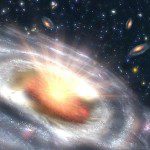
I share a passage from Ian Hutchinson, Monopolizing Knowledge: A Scientist Refutes Religion-Denying, Reason-Destroying Scientism (Belmont, MA: Fias Publishing, 2011). Dr. Hutchinson is a professor of Nuclear Science and Engineering at the Massachusetts Institute of Technology (MIT), with a primary interest in plasma physics:
There does seem to be something special about science, which enables it to arrive at knowledge that is uniquely persuasive and reliable. That is of course a reason for the high prestige of science in our culture. But science’s persuasive and practical power is based on choosing as its topics of study precisely those aspects of the world that are able to be described and systematized into persuasive and practical scientific knowledge. Its insistence on reproducible experimental and observational confirmation, and its insistence on Clarity are the essential foundations of its astonishing successes. For all the justifiable critiques of science’s more immodest claims, for all the scholarly disproof of the fables that it has told about its history and certainty, and for all the well-earned condemnations of scientism’s ambitions to encompass everything in its hegemony, science still does deserve high esteem. It produces real and valuable knowledge, about the topics it is competent to describe. It attracts into its enterprise those who value the truth that they find there, as well, perhaps, as those who seek the power and wealth that science’s technological capabilities can provide. But acknowledging all these sometimes admirable and often powerful characteristics of science in no way establishes that other fields are bereft of knowledge. Non-scientific topics are precisely those that do not lend themselves to providing the reproducible and unambiguous answers that characterize science. No wonder that their answers are more ambiguous, more debatable, more uncertain. Yet these topics are, of course, of profound importance in society and in everyday human life, and their pursuit deserves respect when it shows insight, rigor, creativity, and erudition. (141-142)
***
Meanwhile, here’s some actual science news:
“This Is How Distant Galaxies Recede Away From Us At Faster-Than-Light Speeds”
Posted from Newport Beach, California












